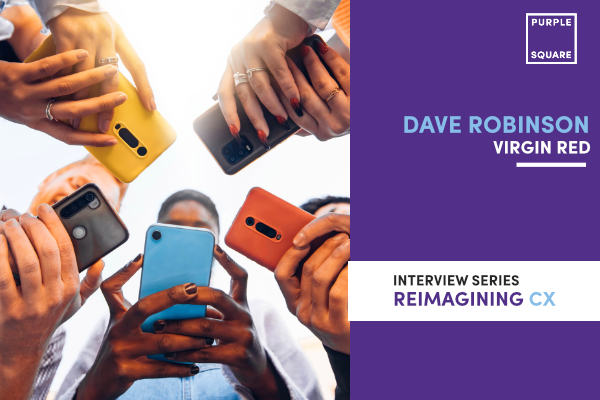Customer Start’s Miles Courtney – Thomas on ensuring consumers feel valued
As part of our ongoing ‘Reimagining CX’ series, Tim Biddiscombe chatted with Miles Courtney-Thomas, Co-founder and Chief Experience Officer of Customer Start, an organisation committed to helping companies become customer-centric. They discussed brand loyalty, the importance of making people feel valued, and the impact of social media on the customer experience.
Ensuring consumers feel valued
In our increasingly complex world consumers need to feel valued by the companies to which they choose to give their business. According to Miles, it is critical that they both “feel valued and get value from companies”. He says the move to digital interfacing and automation, requires companies to “double down on creating a real connection with customers to build the relationship” because the removal of the human element can make interactions less pleasant for the customer, even when the intention is to simplify processes. As the exchange is de-humanised, so must companies think of, innovative ways in which they can personalise experiences, says Miles.
With the blend of human and digital interaction in business becoming much more the norm, this means companies can’t ignore the importance of relationship management in building brand loyalty. Miles believes that “customers want companies to think”. Especially since COVID, it has become clear that companies can no longer sit on the sidelines of society, they are and must be, an active part of the communities in which they operate. Miles says customers want to know that their money is going to companies that are socially aware, and whose values align with their own. Company pledges to work towards carbon neutrality and sustainability are often now a deciding factor in how people spend their money.
Extending the value to employees
It isn’t only the customers who need to feel valued by a company, employees, too, must feel valued for a company to flourish and succeed. Miles turns to the Godfather of customer experience, Bruce Temkin, and his three main concepts (providing value, keeping it simple, and understanding how customers feel about interaction with a company) and focuses them toward the employee experience, because while “they are solid constructs of customer experience, they exist for the employee experience too”. Contented and valued employees offer a better customer experience for consumers, not to mention attracting and retaining new talent.
“The trio of customer experience, employee experience and servant leadership are the vital trio that leads toward successful companies”.
Social Media and the Digitised Customer Experience
When asked if he thinks that brands are adapting quickly enough to social media, and if they have the right technology, tools and structures in place, Miles says that while there’s no simple answer, “the companies that are recognising there is a change in thinking and ways of working with customers are the ones who will be successful in the future”. He adds that consumer expectations have changed. For example, a few years ago, customers might send off an email and expect a response within three days. Today, the rapid replies social media allows for are seen as the norm. What can be problematic for companies is that social media channels are often public and are generally used when customers want to share (and air) their problems and frustrations. “What could be driving more [people] to social media channels is the frustration in making contact with companies through traditional channels” says Miles.
He adds, “we do have different expectations for different types of organisation” – public service providers in the UK, for example, are accepted by consumers as less likely to respond quickly, whereas shops tend to reply faster. In the USA there has been serious investment in government sectors where customers have traditionally been extremely frustrated, such as the Post Office and the DMV. These agencies have had to really think about the customer experience when navigating their systems.
Cost-cutting when times are hard
Given the current economic climate, it can be tempting for companies to consider cutting costs wherever they can. Miles warns that businesses should be very careful when considering lowering costs associated to customer experience. He recommends, instead, that businesses have a “laser focus on investing, not cutting, in areas that are going to have a clear return on investment for them”. That return on investment could mean increased sales, increased advocacy, and repeat custom and these, of course, are precisely the things that improve resilience during the tough times. It’s vital to be smart about where to cut and where to continue to invest.
“Great service and experience don’t happen by mistake, these experiences are designed”.
Like what you see?
Subscribe to our newsletter for customer experience thought leadership and marketing tips and tricks.




